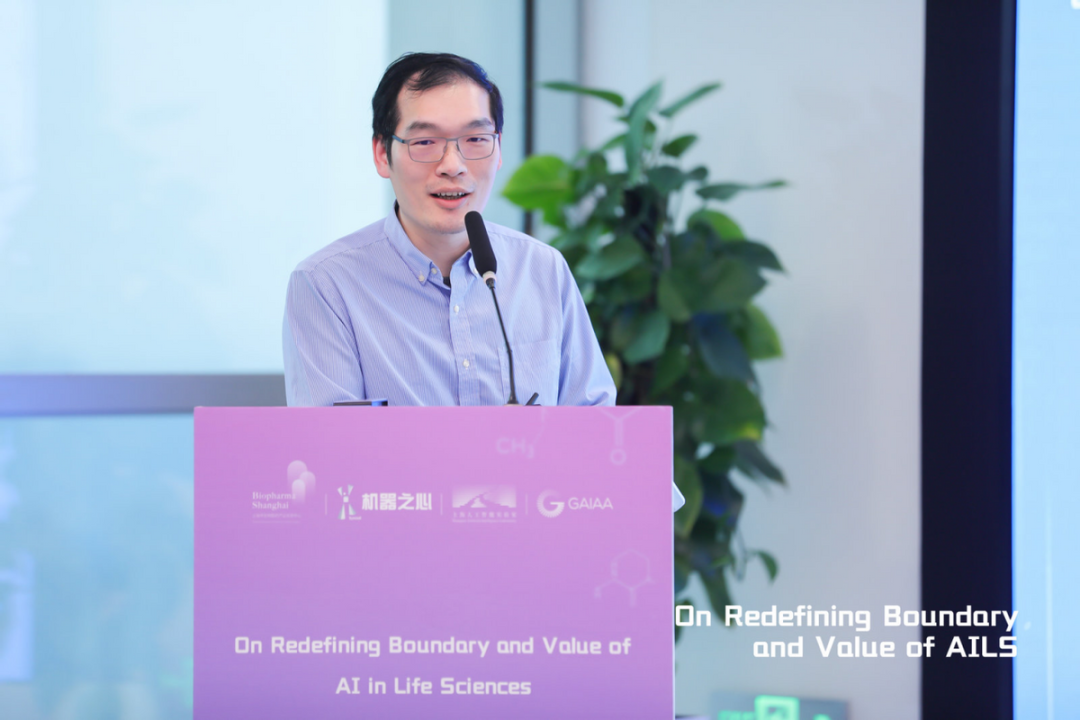Leading Figures Exploring Trends and Challenges in AI-Enabled Life Sciences and Biomedicine
「On Redefining Boundary and Value of AI in Life Sciences」
The seminar “On Redefining Boundary and Value of AI in Life Sciences” was successfully held on February 17th. Co-sponsored by Shanghai Biomedical Industry Promotion Center, Synced, Shanghai Artificial Intelligence Laboratory and Global Artificial Intelligence Academic Alliance, it was dedicated to building an efficient communication and cooperation platform for the industry and gathering the wisdom of the leading figures.


Wang Yanfeng, professor and Assistant to Director of Shanghai Artificial Intelligence Laboratory and Secretary General of Global Artificial Intelligence Academic Alliance, addressed the seminar, saying that the academia and industry need to work together to promote the development of life sciences, biomedicine, genetic engineering, personal health and other fields, so as to achieve life science and biomedical innovation in a faster, safer, more accurate and more inclusive way. And he believes this will represent a new opportunity for scientific development and industrial innovation in the next decade.

Several scientific experts made presentations on the frontier of biomedical technology innovation and engineering applications. Ma Jianpeng, Professor of Shanghai Artificial Intelligence Laboratory and Director of Multiscale Research Institute for Complex Systems at Fudan University expounded the construction of a system for AI-enabled whole-chain new drug discovery. He pointed out that biological research faces increasingly sophisticated systems, more complicated scales, larger data, and therefore the reliance on computational method becomes stronger than ever before. He also emphasized that the research and development of new drug involve systemic efforts, which relies on close coordination of different participants.

Professor Dong Jiajia, from Institute of Translational Medicine, SJTU, presented the “modular click chemistry libraries” method based on the combination of click reaction and CuAAC reaction, which can synthesize drug-forming compound libraries with low cost, high applicability and high throughput and directly screen for bioactivity to address the low predictability of organic chemical reactions, which is a bottleneck in the field of organic synthesis.

Guo Tiannan, Tenured Associate Professor at Westlake University, Director of iMarker Lab of Westlake Laboratory and Founder of Westlake Omics, introduced the clinical application of proteomics measurement technology and the new method of disease diagnosis based on protein profiling and AI. He also elaborated on the logic of proteomics and drug development in the era of big data and big models, emphasizing that We need to pay more attention to the targeted proteins of drugs and their related proteome. He appealed that more research efforts need to be devoted to investigating cellular and animal models and studying patient samples so that we can accumulate enough big data of proteins to build intelligent models through industrial means.


